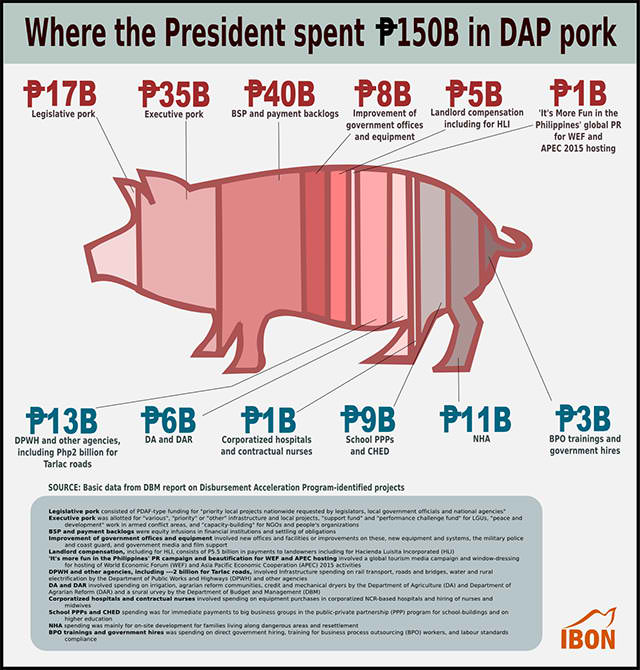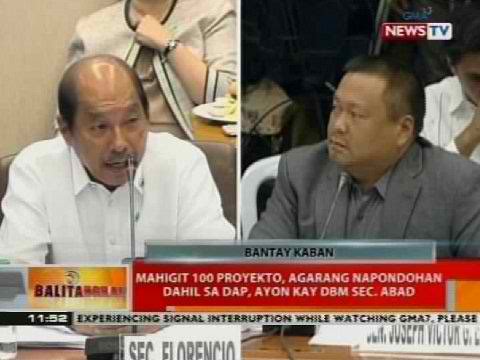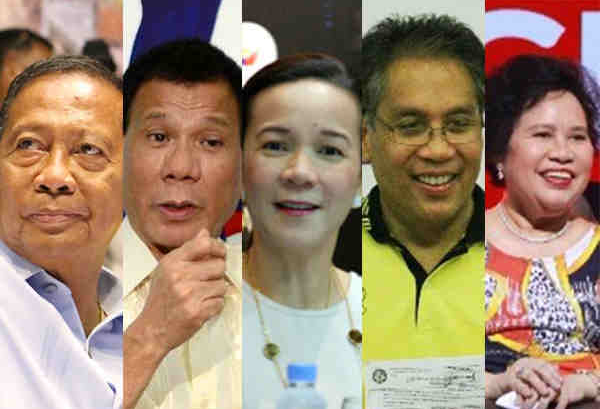For a change…in strategy? Aquino, allies treading the same path but with a new style
by Bernadine Racoma, as originally published on Blog Watch, Philippine Online Chronicles.
This piece would seem too late for the SONA discussion but the delay is intentional. We wanted to wait for a few days to see the different reactions to the rather unexpected tone in President Aquino’s SONA. It seems the wait’s worth it, as the developments indeed have been interesting. The President’s SONA was met by interesting reactions from various groups. We’ll try to guess what’s on the mind of the President (including those of his speechwriter), his allies, and critics.
New Strategy
It looks like the team behind the success of Aquino in taking over the presidency has regained its mojo. The fifth SONA appears to be a manifestation of a strategy that tries to emulate the scenario that led to Aquino’s rise to power. It’s not a complicated strategy. The goal is simply to regain popularity by letting go of the hypocritical hardball approach to regain the lost popularity (well, we’re not sure about the hypocrisy riddance part though), throwing some drama into the fray, and going indirect or subliminal.
Regaining Popularity
It was just like the President suddenly regained his indomitable popularity once again. After his toned down State of the Nation Address, the reactions have been mostly positive. Allies and critics seem to be in agreement in hailing Aquino’s fifth SONA as his best yet. Even the senators detained for the PDAF scam expressed praise over Aquino’s SONA. Well, we understand their elation for not getting that undesirable special mention as the “results” of Aquino’s “anti-corruption” campaign. Overall, the fifth Aquino SONA was welcomed with positivity although there were still some issues or deficiencies pointed out.
The President appeared to want to reestablish his alliances. Maybe it finally dawned on him that losing PDAF, DAP, and the ability to allocate funds to allies in Congress will eventually spell his downfall. It’s not a secret that patronage politics continues even under Aquino’s term. The allies he gained were never there by his side for principle. The same goes with his appointee chief justice in the Supreme Court. Transactional and patronage politics still remain in the picture. It’s worth noting that Aquino and Sereno are reportedly not in good terms as the President is allegedly irked over Sereno’s insistence on having COA’s Grace Pulido Tan appointed as the new justice of the Supreme Court.
Drama, Appeal to Emotion
The unexpected tone in the latest SONA sounded good but it would have been dramatically better if they ditched the drama. We say most people would probably tolerate the possible lies or tendency to mislead in the development reports and figures cited, the rhetoric, the symbolisms, and the GMA-like way of acknowledging people and showing video clips of the supposed evidences of Aquino’s achievements. What’s repulsive, though, is the use of drama, the appeal to emotion. “The Filipino is worth dying for” – Could it get any cheesier than that? He’s invoking the legacy of his parents once more. Worse, he resorted to that holding-back-tears act to go with his mostly smoking-induced coughing and difficulty to speak longer without interruption, somehow amplifying the “emotion” in his supposedly powerfully emotional address.
We dare say the emotion there was dubious, selfish at best. Consider this: he was emotional upon remembering his parents but there wasn’t any (not even a hint of gloom on his face) when he was confronted with the death and damage reports of Yolanda. He can afford to look weak when talking about his family but can’t tone down his tactlessness when faced with sensitive situations. Remember his infamous “Buhay ka pa naman, di ba?” quip in Yolanda’s aftermath?
Moreover, that part of his address when he insinuated possible death that may prevent his “reforms” was just deplorable. It was made even worse when a certain media queen was flashed on screen with her tears overflowing. Add Senator Trillanes to the mix and you get the appeal to emotion and appeal to pity strategies at play. Yes, the Senate’s junior “epalitician” is at it again. A couple of days after Aquino’s subtle hints of the possibility that his life may soon end (assassination?), Trillanes alleged that a coup plot is being brewed by former generals allied with President Aquino’s predecessor. This “revelation” was shrugged off by Palace spokespersons. We won’t be surprised if this is another attempt from Trillanes to be noticed by Aquino as he once tried to get inside Aquino’s circle when he supposedly served as a back channel negotiator on the territorial disputes with China, irking the DFA secretary. But whatever the case may be, it looks like the coup rumor will be bringing in more sympathy for President Aquino.
Well, we can’t argue with results. The strategy seems to be working as even the opposition gave positive feedback over Aquino’s fifth SONA. We reckon things would have been starkly different if Aquino showed the same un-statesmanly tack he has become accustomed to. Despite the SONA drama that was arguably worse than GMA’s “bangkang papel,” it looks like Aquino succeeded in winning favorable reaction.
Going Subliminal, Non-Confrontational
Also, in what looks like the Aquino administration’s new strategy to weather the DAP controversy, the SONA looked like the start of being subtle, being less combative. We can’t be sure about the intentions of President Aquino’s speech writer but when he said the words “Vice-President” and “maitim” with just a number of words apart, that sounded more like an attack rather than a praise for the Vice-President.
Here’s the exact quote:
Alam po ni Vice President na noong 1987, nagkasama kami, may kudeta, na-ambush po tayo doon, at tapos noon ay pangalawang buhay ko na po ito. Hindi natin maiiwasang mag-isip sa mga binubunggo natin, may araw kayang pagsampa ng entablado ay ito na ba huling araw, may magtatagumpay bang maglagay ng bomba; magtatagumpay ba iyong mga maiitim na balak ng atin pong mga katunggaling gusto tayong ibalik sa maling kalakalan.
Of course, this is just one very trivial observation but we can’t help not noticing something different especially when the lines were spoken. “Maitim” was like that grin-inducing buzzword many who are familiar with the current political situation may have noticed.
It’s no secret how the Vice President is associated with the words “maligno” and “maitim.” Recently, the VP expressed his disagreement with Aquino’s stand on DAP. He was the only cabinet secretary who refused to clap when the President rejected Secretary Abad’s resignation. He wants Abad out despite the obviously firm decision of Aquino to make Abad stay. He also released a statement emphasizing that “innovative reforms should be constitutional,” something that can be construed as a clear rejection of the idea the President and his men are espousing. The Vice President is also the top official of UNA, whose spokesperson has been relentlessly attacking the Aquino administration.
We can’t say whether or not Aquino is now identifying Binay as an adversary but it’s quite possible that the writer of the address just wanted to insert something subliminally affronting.
On DAP, the subtle attempts in defending it were somewhat overshadowed by President Aquino’s call for a supplementary budget, which appeared to many as a concession to the Supreme Court ruling. However, days later, the Aquino government apparently still wants DAP to continue as there have been moves to define savings in the budget to go around the Supreme Court’s ruling on DAP. Also, Malacañang already redefined savings in the proposed 2015 budget. We’re just not sure if such an act will prevail over the Supreme Court decision since the SC ruling on DAP provided an implied definition of what savings should be.
Curiously, Senator Drilon is now implicitly admitting that DAP is indeed illegal by saying in an ABS-CBN interview that “DAP can be legal” by doing some processes in Congress. The Senate President, during the DAP hearing in the Senate, had no qualms lawyering for Secretary Abad and the Aquino Administration to insist that DAP is legal. Now, he appears to acknowledge the SC ruling and is keen on doing what can be done to prevent further confrontations.
All these show hints of how the Aquino government intends to move forward. He now wants to avoid direct confrontations as they may have learned how it can adversely affect even the herculean Aquino popularity. However, the goal apparently remains the same. The Aquino administration still can’t let go of lump sum allocations, would still want to take over the power of the purse from Congress, and Congress intends to give in.
For a change…in strategy? Aquino, allies treading the same path but with a new style (Part 2)
For a change, we would like to give the President a generous serving of the benefit of the doubt. Yes, we remain cautious with Aquino’s seemingly hypocritical and treacherous acts but we won’t deny seeing tinges of good intentions.
Note: We are in favor of DAP’s practice of declaring and using “savings” earlier but we are completely against cross-border transfers and the funding of projects not listed in the General Appropriations Act.
DAPpled
The Aquino government’s obsession in perpetuating DAP is not difficult to understand. Looking at things realistically, it’s easy to guess that patronage politics is at the root of it all. On the other hand, with the good faith assumption perspective, it can be said that the need to have some freedom to reallocate funds to address emerging needs is justifiable – even though this good faith is quickly negated by the refusal to institute FOI earlier. The belated prioritizing of the FOI Bill is plainly belated. With the way things are going, the FOI will no longer enable the transparent examination of government fund use under Aquino.
The DAP issue is dappled with a variety of many contentious and some desirable colors. Aquino’s yellow motif has blotches of different stains that it may now be the best time to bleach everything out to get rid of all colors, including the divisive yellow.
New Strategy on DAP
Various groups suggested doing legislative solutions to address the unconstitutionality of DAP’s key practices by coming up with a clearer definition for savings. It looks like Aquino and his team are now listening. Instead of annoyingly attacking the Supreme Court for its decision, now there is a concerted effort to redefine savings and augmentation to remedy the illegality of savings creation and use in DAP. This is a welcome development. However, we’re not sure now if it’s really a sound strategy. Suggestions have been made before with the goal of helping out Aquino if his administration is indeed maintaining good faith in insisting on DAP. This time, we just realized that the Supreme Court ruling stated that the DAP practices they struck down were unconstitutional.
The keyword is “unconstitutional.” It’s not simply illegal but unconstitutional. Section 25 (5), Article VI of the 1987 Constitution states that:
“No law shall be passed authorizing any transfer of appropriations; however, the President, the President of the Senate, the Speaker of the House of Representatives, the Chief Justice of the Supreme Court, and the heads of Constitutional Commissions may, by law, be authorized to augment any item in the general appropriations law for their respective offices from savings in other items of their respective appropriations.”
Aquino’s defense on DAP hinges on certain sections of the 1987 Administrative Code, with reference to the Article VI, Section 25 lines highlighted/boldfaced above. Aquino’s legal team argued that the 1987 Administrative Code, contradictory it may be to the 1987 Constitution, remains in effect unless declared unconstitutional. With the Supreme Court clearly defining ambiguous legal provisions and ruling that the Aquino government’s arguments for DAP are unacceptable, it’s safe to say that the pertinent 1987 Administrative Code sections could no longer be used as defense for DAP-like budget implementations.
It looks like the only way for DAP (the cross-border transfers and funding of non-GAA listed projects in particular) to survive is to win a favorable ruling with the Aquino government’s motion for reconsideration, the reversal of the 13-0 ruling. Passing laws that will support the main acts of DAP does not sound viable considering the Supreme Court’s interpretation of Section 25 (5), Article VI of the 1987 Constitution. If they successfully pass such laws, they will only be legally questioned once more and exposed to more solid attacks from both principled and opportunistic opposition parties.
Clearly, Aquino wants “greater flexibility” in handling government funds. Congress may be able to help him with this as the Congress may actually wield the power to define savings. However, what’s irrefutable is the fact that the President can no longer do cross-border transfers, no more carrots for the horses in Congress. The Senate and House of Representatives, try as they may, cannot pass a valid law enabling cross-border transfers since it will be a clear violation of the Constitution. This means that they can no longer pass a law to reestablish a PDAF-like system.
If we want to believe that the President is really sincere in his anti-corruption crusade, we may think that he is actually happy with the way things are going now. If the intentions of DAP are indeed noble, the ability to declare and use savings earlier should be enough since it is what the spirit of disbursement acceleration is largely about. Allowing congressmen and senators to decide on where funds are to be used, allocating funds to other branches of government, and spending for projects not listed in the GAA are the more contentious and plunder-prone schemes of DAP. President Aquino should be very happy now that he has a valid excuse not to please the crocs in Congress.
If President Aquino didn’t act childishly and immaturely in attacking the Supreme Court, we would have believed that all these DAP issue has been his ingenious plan to plug holes that enable plunderous and corrupt practices in government spending, a plan that allows him to pursue his corruption fight without his thieving allies realizing that they’ve been had.
A Bad Budget?
We can tolerate the overexcitement or excessive enthusiasm in the 2015 Budget submitted by Secretary Abad with a portion that already redefines savings. However, it’s difficult to believe good intentions in their more than P500 billion lump sum allocations in the national budget. They’re claiming that it is considered “best practice” but weren’t they among those who vehemently assailed the former president’s lump sum appropriations (which were even smaller then)?
Professor Leonor Briones, a former budget secretary and convenor of Social Watch Philippines, is claiming that President Aquino will be having P1 trillion worth of “pork” in the 2015 budget, which is allegedly designed to support the administration’s lineup of candidates for 2016. We don’t really mind the attempts to expedite government spending on various projects to make the administration’s candidates appear more desirable since this does not really work. What usually works is the amounts of money spent on buying votes and mobilizing supporters, spending on ads supposedly promoting the government but are obviously advancing the agenda of would-be candidates (yes, Senator Cayetano, we’re looking at your TV ad), and the money used to lure strong candidates to run with the administration. We really hope President Aquino is trying to leave a good legacy.
The national budget for 2015 will be scrutinized more meticulously in the coming days so we’ll leave discussions about it for another post. However, we have to agree that there are things that need to be done to prevent Secretary Abad’s budget from becoming a bad budget. Hopefully, after all the debates in Congress, the budget will have already been tweaked meticulously so that it will no longer require DAP-like mechanisms.
FOIling Trapos
Again, we’re trying to be excessively open to President Aquino’s “good intentions” here. Perhaps he didn’t want FOI to be discussed too soon because he didn’t want something half-baked. He may have realized how difficult it would be to go against all the unscrupulous members of Congress in pushing for an effective FOI law. That’s why he wants it discussed near the election season to threaten congressmen and senators who want to be re-elected with the instant backlash from voters. He might be trying to push for the best possible version of FOI before the presidential election. Yes, this is wishful thinking but we really hope this is what the president has in mind.
We are not losing hope that something good will come out of the Aquino administration. The prospects may look extremely dim but who knows the second Aquino president would be able to pull out a pleasant surprise when he leaves Malacañang. He is not the best and he certainly is annoying but he appears to have earned a good reputation internationally, something our country can make good use of. He even has an apologist on Wall Street Journal who is making it appear that he put the big dent on the Philippine debt burden despite a graph posted on the same article clearly showing that it was Arroyo who did the way better job of lowering the country’s debt.
Photos via facebook.com/presidentnoy. Some rights reserved.





